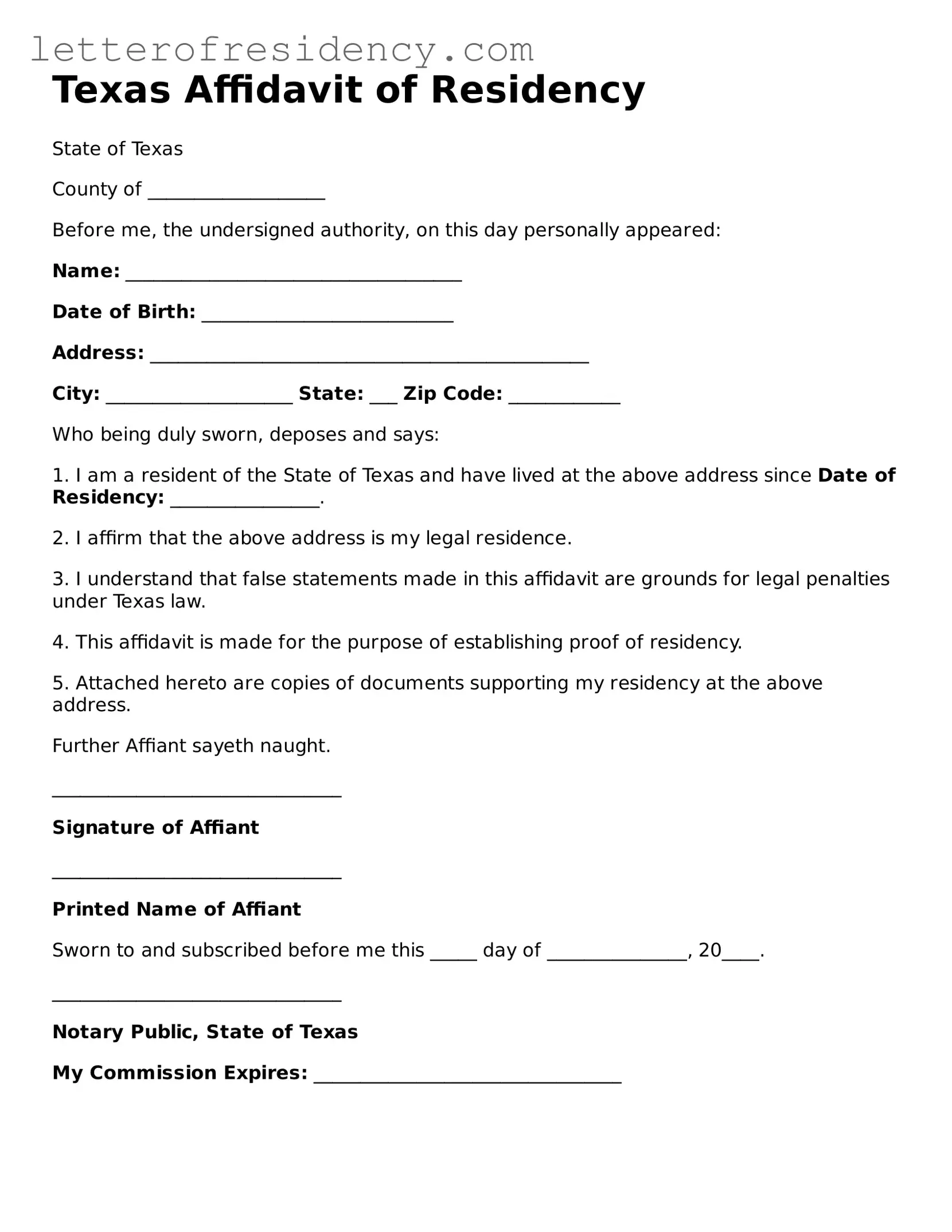What You Should Know About This Form
-
What is the Texas Affidavit of Residency form?
The Texas Affidavit of Residency form is a legal document used to establish a person's residency in Texas. It is often required for various purposes, such as enrolling a child in school or obtaining a driver's license. The form helps confirm that an individual lives at a specific address in Texas.
-
Who needs to complete the Affidavit of Residency?
Typically, anyone who needs to prove their residency in Texas may need to complete this form. This includes parents enrolling their children in public schools, individuals applying for state benefits, or anyone needing to verify their address for legal purposes.
-
What information is required on the form?
The form generally requires basic personal information, including your name, address, and the duration of your residency at that address. You may also need to provide the names of any individuals living with you and their relationship to you.
-
How is the form submitted?
The submission process can vary depending on the purpose for which you are using the affidavit. Often, you can submit it directly to the school district or agency that requested it. Some may require you to file it with a local government office.
-
Do I need a witness or notary?
In many cases, the Texas Affidavit of Residency form must be signed in front of a notary public. This adds a layer of authenticity to the document. However, some organizations may accept an affidavit without notarization, so it's best to check the specific requirements of the entity requesting the form.
-
Can I use the form for multiple purposes?
Yes, the Texas Affidavit of Residency can often be used for multiple purposes. However, ensure that it meets the specific requirements of each organization or agency you are submitting it to. Some may have additional requirements or specific formats they prefer.
-
What if my residency status changes?
If your residency status changes after you have submitted the affidavit, it is important to update the relevant parties. You may need to fill out a new affidavit to reflect your current address and residency status.
-
Are there any penalties for providing false information?
Yes, providing false information on the Texas Affidavit of Residency can lead to serious consequences. This includes potential legal penalties, such as fines or even criminal charges, depending on the severity of the falsehood.
-
Where can I obtain the Affidavit of Residency form?
You can usually find the Texas Affidavit of Residency form online on government or school district websites. Some local offices may also provide physical copies. Ensure you are using the most current version of the form.
-
Is there a fee associated with the form?
Generally, there is no fee to complete the Texas Affidavit of Residency form itself. However, if you need to have it notarized, there may be a small fee for the notary service. Check with your local notary for their rates.
